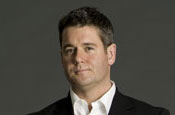Back in 2004, in an earlier, more innocent age, Northern Rock was proud to spend £25m on sponsoring Newcastle United FC. Northern Rock chief executive Adam Applegarth looked ahead to five successful seasons together and spoke of 'a long-term relationship'. Barely three years later, everything had turned sour.
It was a similar story in 2007 for West Ham United. A £7.5m deal, worth £2.5m a year, was agreed by package holiday firm XL Holidays. But with two years of funding still to be paid, XL went bust and West Ham was left sponsorless. Last week, Manchester United suffered the same indignity when AIG announced that it would not renew its four-year sponsorship deal when it expires in 2010. AIG is also exploring options to terminate its current £56m deal. With 80% of the insurer owned by the US taxpayer and 97% of its shareholder capital lost, a glamorous global sponsorship looks a little incongruous these days.
Three big-money sponsors. Three business debacles. Coincidence? There are plenty more examples. Take Royal Bank of Scotland - currently the biggest business basket case in Britain. Aside from losing a whopping £28bn last year, RBS is also notable for the extraordi-nary largesse of its sponsorship department. Despite its imminent nationalisation, you could still spot the brand on Andy Murray's right sleeve in Melbourne this week, and it will be all over the British and US Open golf tournaments this summer. It's the main sponsor of the 6 Nations rugby tournament and its brand is proudly plastered across its own F1 racing car.
Could there be a link between the kind of companies that embark on gratuitous levels of sponsorship and those currently suffering the most in these difficult times? I think so. Their troubles are not being caused directly by their sponsorship deals - though the millions off the bottom line hardly help. The real connection is more indirect. Big, dumb sponsorships are always going to be popular with the kinds of companies that think big, and don't sweat the details.
If you run the numbers on the cost of a big sponsorship you will usually discover that the actual ROI is much less than using the money for a variety of smaller, more local, integrated activities. That's why smart marketing players such as Tesco, P&G and Apple rarely get involved in this kind of sponsorship. But if you are a big, arrogant, ambitious and badly run operation, these global sponsorship deals prove irresistible. For the same reasons that these companies over-leveraged themselves and lost track of their costs, they also love to sponsor.
Still not convinced? Take a look at the London 2012 sponsorship list. It's a roll call of companies in trouble. Top tier sponsor Lloyds TSB looks likely to become nationalised, which prompts the question why it is even bothering to pay its £80m sponsorship fee. Within months, it will probably be owned by the British taxpayer anyway, which means you will be paying to sponsor your own Olympics. Eh?
Another top tier sponsor, BT, is in dire shape after apparently getting its sums wrong to the tune of £340m. Things are even worse for another of 2012's main sponsors, Nortel, which has entered bankruptcy protection.
It seems to me that the bigger the sponsor, the bigger the risk, and the more likely it is to go broke. Next time you see a football shirt, racing car, or sporting event - take note. The brands associated with them may well go to the wall in 2009. I'll bet you all my RBS shares
Mark Ritson is an associate professor of marketing, and consultant to some of the world's leading brand
30 seconds on RBS' 6 Nations deal
- Under a £20m sponsorship deal, agreed last week, Royal Bank of Scotland will sponsor the 6 Nations rugby tournament until 2013.
- RBS is 70% owned by the government and is expected to have lost as much as £28bn in 2008, the worst fall in UK corporate history.
- Before agreeing the deal, RBS conducted a study into the economic impact of the 6 Nations, which found that it generates £400m annually for the UK economy.
- According to an RBS spokesman: 'The sponsorship has been selected to meet very specific business objectives within the six competing nations.'
- RBS has deals with the PGA of America (golf), the English cricket team, Andy and Jamie Murray (tennis), AT&T Williams (F1), and the Philadelphia Phillies (baseball).
- The 6 Nations deal will be officially announced at the media launch of the 2009 tournament today (Wednesday). The games begin on 7 February, with England taking on Italy.


